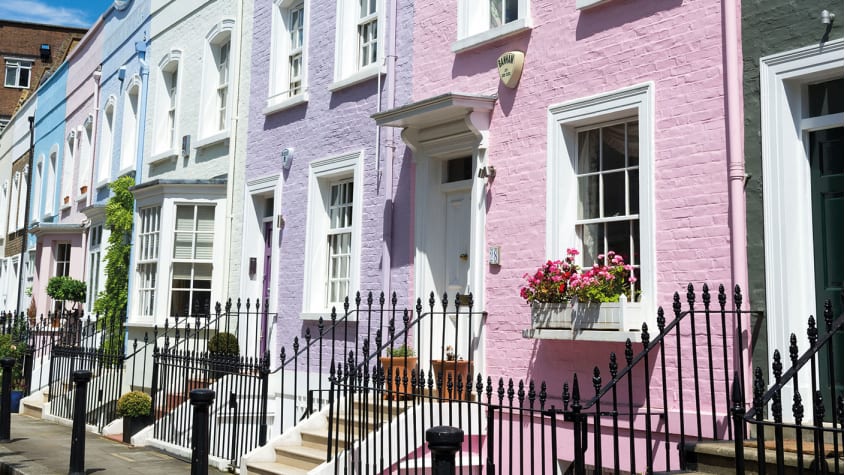There is a general presumption that the reopening of the UK housing market following the pandemic freeze must be negative for house prices. But it is too early to be sure. Lucian Cook, the head of residential research at Savills, warns against jumping to any conclusions until data on transactions is available.
In March, new buyers’ enquiries and new instructions collapsed “like never before”, making it “difficult to get an indication of the impact on prices for a while”. Generally, economic downturns coincide with falling house prices. In recent years, however, house prices have been falling in inflation-adjusted terms. The absence of a run-up in house prices before the virus “should insulate the market from significant house-price falls”, reckons Cook. In the short term, sentiment will be a factor, but “in the long term, it will come back to economic fundamentals”.
The first of those is affordability. With interest rates at 0.1%, the cost of mortgage debt is very low, despite more limited availability. Unemployment, however, could be a more serious problem, bringing some forced sales and making people cautious about moving up the housing ladder. Savills uses the forecasts of Oxford Economics. It predicts a 15% drop in GDP in the second quarter followed by an 8% rebound in the third and slowing growth thereafter. A downside scenario has a further 2.5% drop in the third quarter, but higher subsequent growth. The baseline forecast results in unemployment rising from 4% to 6%, not enough to have a significant lasting impact on the housing market, but the downside scenario has unemployment reaching 10%.
These factors, together with government action to support jobs and a benevolent approach to arrears by lenders should temper the impact on housing. Nonetheless, the number of transactions will take several years to recover to the pre-pandemic level of 300,000 a quarter, owing to a lack of confidence by both buyers and sellers. Savills’ central expectation is that prices will rise 15% over the next five years, with a 5% decline this year followed by steady increases in subsequent years. Its more pessimistic scenario sees a 10% fall this year, but faster growth thereafter.
Will the southeast keep lagging?
Savills expects a continuation of the recent trend – perhaps interrupted by an uptick in regional unemployment in the short term – of London and the southeast underperforming the Midlands and north, given how extended house prices relative to the national average became, particularly in London. Prime central London prices, however, are 20% below 2014 levels, while prime London properties and those in other regions worth more than £2m are 5% below, having been heavily affected by tax changes and political uncertainty. So these markets “were looking pretty good value” going into the downturn. Savills reports higher unprompted web traffic than before the pandemic, while new buyer registrations, both from British and overseas buyers, have risen strongly.
In a survey of 600 clients, 37% of respondents have become less committed to moving over the next six months, but 27% more inclined to do so. Over 12 and 24 months, that negative balance reverses to +9% and +29% more committed to moving. “Spending much more time at home has made the quirks and idiosyncrasies of home more apparent, which may act as a spur to moving.” Covid-19 has also made rural properties much more appealing, especially for those with school-age children, offering the prospect of a renaissance for those locations. This preference extends to suburban London; people want larger houses with gardens.
This is not necessarily negative for central London or other urban locations. For international buyers, total buy, sell and hold costs are competitive with other major cities worldwide and they will have noted the comparative leniency of the UK’s lockdown. Younger people will still want to live in cities and those now hankering for village and country life may come to miss the vast array of restaurants and entertainment facilities. The cost and convenience of travel will favour city living, especially as roads become more congested and public transport returns to normal. “Further price softening in London will offer a compelling buying opportunity,” says Savills.
Undoubtedly, there will be more working from home. This will increase the space requirement at home, favouring houses over flats and properties with even modest gardens to those without. Demand for second homes will probably increase; the government’s advice to stay away from them in the lockdown was widely ignored. Price expectations in the Savills survey show nearly half expecting no change and half expecting price falls. But buyers are more negative than sellers, so may have to adjust their expectations. Though Cook didn’t give explicit advice to those thinking of moving, the message between-the-lines was “get on with it and don’t expect any bargains”.
source:moneyweek




